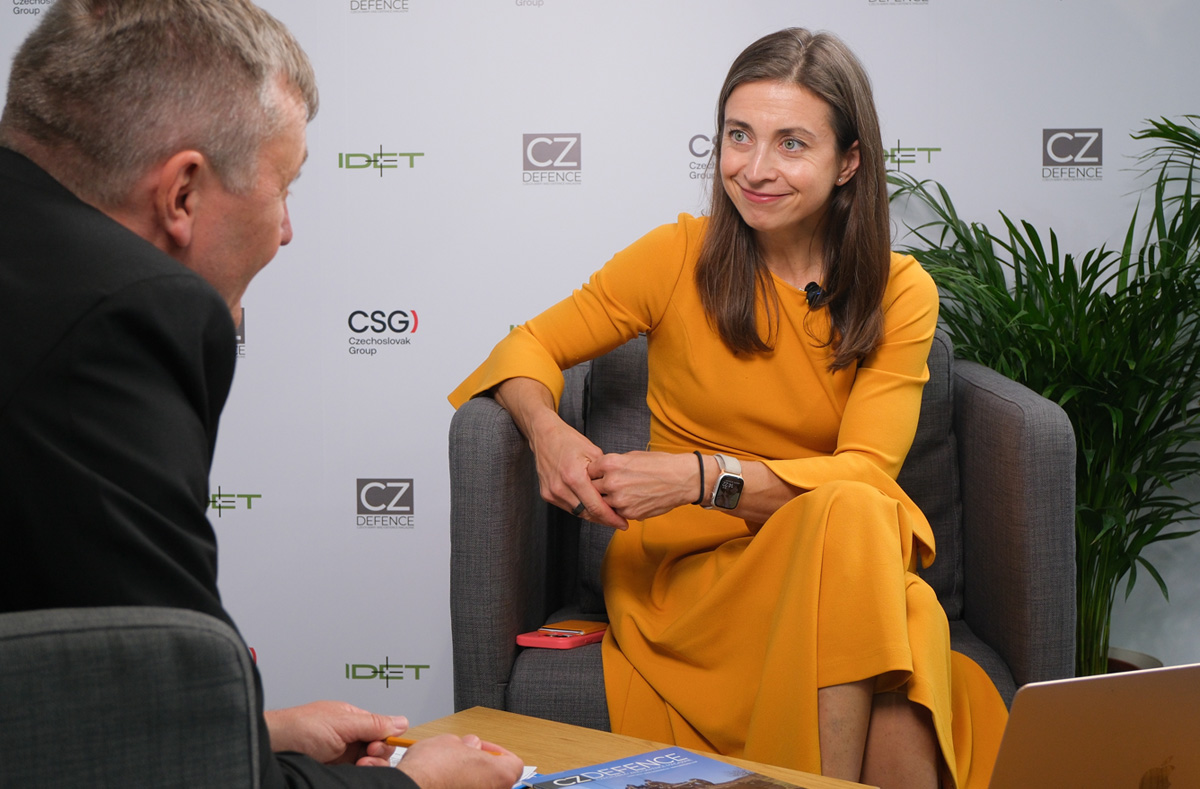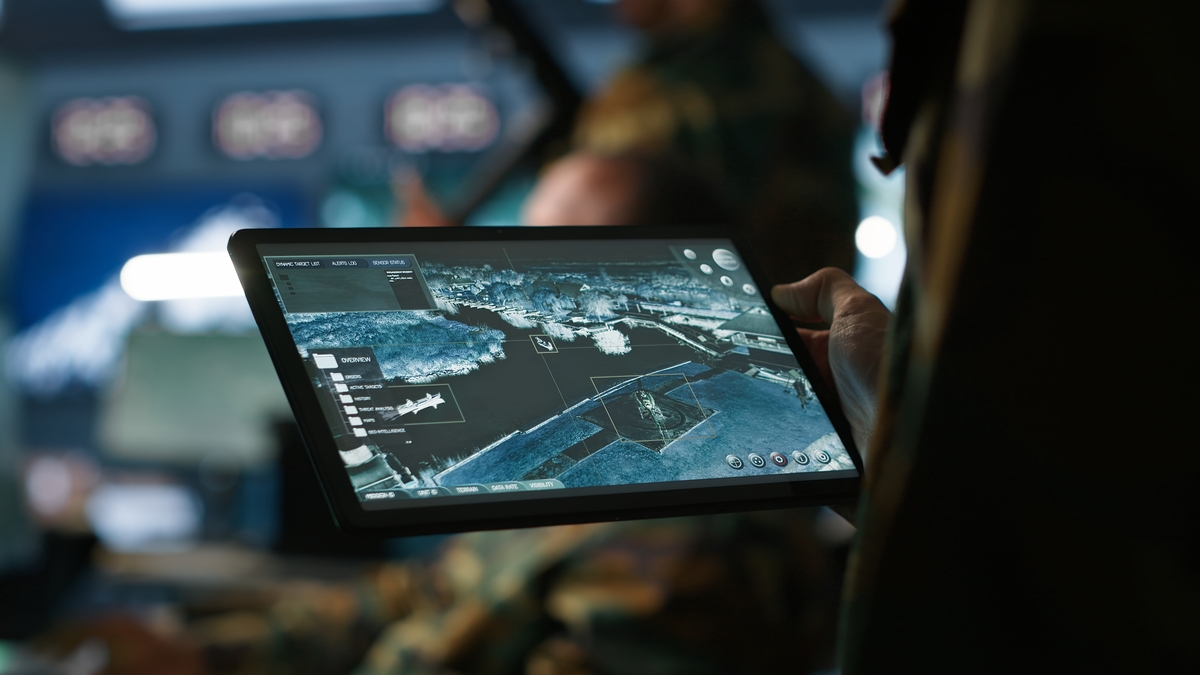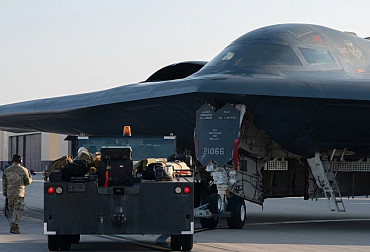The Czech startup scene is playing an increasingly important role in the defense industry
At this year's IDET 2025 trade fair, alongside established defense giants, startups also made a significant impact, presenting often very interesting innovative technologies. These included intelligent software and production management systems, solutions for the safe operation of drones, and space projects with defense applications. These projects are just some of the examples confirming that the Czech startup scene is playing an increasingly important role in the defense industry, which is why we invited Lucie Brešová, partner at Presto Ventures and one of the founders of Presto Tech Horizons, Milan Málek, CEO of PARTORY, Lukáš Brchl, co-founder of Dronetag; and Petr Boháček, commercial director of TRL Space, to our studio at the IDET trade fair.
Video: Czech startups are playing an increasingly important role in the defense industry / CZ DEFENCE
Presto Tech Horizons
Presto Tech Horizons (often abbreviated as Presto Horizons) is an investment fund focused on supporting technology startups operating primarily in the security and defense sectors, with an emphasis on dual-use technologies, i.e., solutions that can be used in both civilian and defense contexts. The fund was established as a joint project between venture capital company Presto Ventures and industrial group Czechoslovak Group (CSG). The fund's investments target areas such as artificial intelligence (AI), cyber security, robotics, automation, space technology, aerospace, energy, new materials, sensors, advanced data infrastructure, and other technologies that strengthen society's security and resilience.
According to Presto Ventures partner Lucie Brešová, the startups in which the fund has invested span a range of technological areas. The fund's first investments include Vidar Systems, which develops portable AI systems for acoustic localization of artillery fire; Bavovna, which develops hybrid AI for autonomous drone navigation even in environments without GPS; and Tur.ai, which develops RPA (robotic process automation) for enterprise use. The fund also supported BlueQubit, a startup developing a Quantum Software as a Service (QSaaS) platform for simplified integration of quantum algorithms into real-world applications. "Another startup, Diffuze Drive, focuses on synthetic data for AI training. In practice, this means that if you want to teach autonomous AI to recognize a tank hidden behind a tree but don't have real images, this company will create artificial data – what a tank looks like in fog, behind two or three trees, and so on," explains Brešová.

We were curious why there were no Czech companies among the selected projects. "We saw hundreds, even thousands of startups, but only two or three were from the Czech Republic. The problem is that startups in the Czech Republic have difficulty establishing active cooperation with defense agencies. The army does not have the capacity to place small orders to verify whether a technology makes sense. Startups therefore have no opportunity to be tested in practice, which is a major obstacle," Brešová points out. According to her, startups finance their development from grants, which provides some resources, but at the same time does not allow the technology to be tested in a real environment. "This is a great pity, because startups are missing out on commercial financing opportunities. We are looking for companies that have the potential to strengthen Europe's defense capabilities and competitiveness. Technology must not only be innovative, but also practical," adds the partner of Presto Ventures and one of the founders of Presto Tech Horizons.
According to Brešová, new technologies are playing an increasingly important role in defense: "The war in Ukraine has shown that modern technologies are an integral part of the battlefield. Although drones were already known, no one could have imagined such widespread use. The same applies to the use of satellite data and artificial intelligence. However, these technologies are developing much faster in the private sector."

According to Lucie Brešová, the army would never be able to develop its own drone as quickly and efficiently as startups. "If the army commissioned the development itself, it would cost more and the resulting product would always lag behind what the market offers," Brešová points out, adding that the main problem is not so much the development itself, but its implementation in real-world applications. "We see this in Europe too—the acquisition processes are too lengthy. In the United States, there is the Other Transaction Authority (OTA), which allows units to purchase technology worth up to $30 million within a few weeks. If it proves itself, then it goes through the standard approval process. A similar mechanism exists in the Czech Republic, but the limit is about CZK 40,000 per year, which is barely enough for a backpack," says Brešová with a touch of exaggeration. The fund is also trying to get involved in European support schemes. "We are working on applications for EU funds, but the current mechanisms are practically unattainable for small startups. The reason is the bureaucracy that smaller companies cannot cope with," concludes Lucie Brešová, partner at Presto Ventures and one of the founders of Presto Tech Horizons, in the interview.
Partory
Partory is positioning itself as a digital factory that connects the manufacturing capacities of engineering companies with demand for parts across industrial sectors. "We are basically an engineering parts factory that does everything, just like a standard factory. However, we also operate our own application through which customers can request parts based on technical documentation," explains Milan Málek, one of the founders of Partory.
According to him, there is great potential for utilizing spare production capacity in the defense industry: "In the defense industry, we feel that demand exceeds supply in the market, so we thought it would be great to have some spare capacity and offer it to buyers and companies that exist today." Partory's main tool is its own application, which simplifies the process of requesting and placing orders. "You upload a drawing, our software reads the technical documentation, evaluates the dimensions and the technology required, and looks in our machine database. We have over 8,000 machines there, and the app determines which one is the most suitable and calculates the price," Málek describes. According to him, this eliminates the need to contact dozens of suppliers: "With one click, you can say, 'Yes, I want that. We will provide the material, inspection, transport, and deliver the finished product exactly as requested.

Partory emphasizes European production and Czech industry—Made in Europe is our motto. I think that's how it should be; we don't want to operate outside Europe. Thanks to the fact that my brother and I are both Czech, more than 70% of our suppliers are Czech companies," says Málek. The company also uses modern technologies, including AI. "With the advent of artificial intelligence, we've gone all in. We hired someone from Google who started building a Machine Learning Model on top of all our data. We see a future in online audits, for example, where AI evaluates recorded video to determine whether a supplier is clean and how basic order is maintained in the workplace," says Málek.
Partory also places great emphasis on quality control. "We always want to make samples and compare them with the drawings. You wouldn't believe how often the documentation doesn't match the physical product, which is why we add data sheets to orders describing the machine, the production process, and the frequency of checks. At the same time, our technologists audit suppliers directly in production," explains Milan Málek, one of the founders of Partory.
Dronetag
Founded in 2018, Dronetag started out purely in the civilian sector. Today, its products are also used in the defense industry. At the IDET defense technology trade fair, CEO Lukáš Brchl presented the main areas Dronetag is currently focusing on. "We have two types of products. One is identification devices that you put on your own drone so that other people in your team can see that you are flying, which helps with coordination," explains Brchl. According to him, this technology is also starting to be used in military exercises, where teams from different armies with different types of drones meet. "When you equip them all with this device, which sends data to our application in a secure manner, coordinating the drones during exercises is much easier."

Although Dronetag's technology is now used in military applications, the company originally had no military ambitions. "We were originally a strictly civilian company, but in 2023 we were looking for opportunities to expand. That's when we applied to NATO's DIANA (Defense Innovation Accelerator for the North Atlantic) defense accelerator, which received 1,400 applications. Only 42 were selected, and we were the only company from the Czech Republic and Slovakia," Brchl explains. "This opened the door to the defense industry for us. We have generated all the traction in this market over the past year and a half." Today, the company profiles itself as "dual-use," considering its products usable in both the civilian and defense sectors. "We still make identification devices, but we are also developing detection systems. Everything we do is dual-use, and we tailor our solutions to the end customer," says Brchl, adding that the company already works with airports, nuclear power plants, data centers, prisons, and national parks. The company is also developing more sophisticated solutions for riskier environments such as international airports.
TRL Space
TRL Space presented several new products at the IDET trade fair, ranging from the TRAP satellite and new drones to an integrated border protection system. One of the main solutions on display was a system that combines a satellite, drones, and software into a single unit. "It combines our main products into one comprehensive solution. It's a drone that can monitor large areas in great detail, satellite data that tracks entire borders, and everything comes together in one Trulli software. Users can then analyze and evaluate everything through it," explains Petr Boháček, commercial director of TRL Space.
According to him, the most important thing today is to connect technologies so that they work together and speed up the decision-making process. "With increasing complexity, it is essential that technologies understand each other. Information from reconnaissance must reach the decision-maker as quickly and easily as possible, whether the next step is a strike or another response," says Boháček, emphasizing that TRL Space's solution could be extremely interesting for the Czech Army. "The Czech Army has a lot of different resources and software, but often from abroad. We are a 100% Czech company, we designe and manufacture in the Czech Republic. This is attractive not only economically, but also in terms of self-sufficiency and independence for key systems," adds Boháček.
The system also places a strong emphasis on data security and independence. "Data independence is hugely important because whoever controls the data controls everything. We have to ensure that data is stored securely, well encrypted, and that data flow between systems is secure. Without this, no defense system can function," Boháček points out.

TRL Space also presented the TRAP satellite at the IDET trade fair, which offers high-resolution images at a fraction of the price of conventional satellites. "The Czech Republic does not currently have any high-resolution satellites, so it is unable to independently image its own territory. Large satellites cost up to $350 million. We have come up with a satellite that costs a fraction of that amount and yet has sufficient resolution for military purposes. And most importantly, it is Czech," emphasizes Petr Boháček.
According to Boháček, autonomy is the key to the future. "I can't imagine us functioning any other way. In Ukraine, we see that the battlefield is often disrupted, without GPS or GNSS signals. Our drones therefore work even without these signals and without pilots. This manifests itself on several levels. First, we have the ability to engage a target, and the drone then uses its own navigation and autonomous guidance to guide itself to the target and hit it. Secondly, we have our own systems. If the drone loses its GPS or GNSS signal, it can return to the operator thanks to its own visual navigation, which takes photos during flight and collects a visual image of its location," concludes Petr Boháček, commercial director of TRL Space.



















